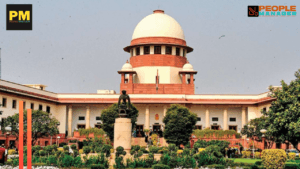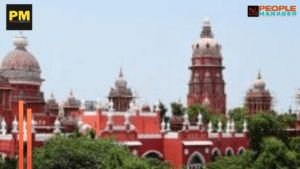Calcutta High Court Sets Precedent: Recovery of Excess Payments Prohibited
Mandal's petition challenged the Museum's decision to demote him, citing the autonomy granted to the Museum under the Indian Museum Act of 1910. He also disputed attempts to reduce his terminal benefits or recover excess payments received by him due to the pay scale upgrade.

In a landmark ruling that prioritises employee welfare and justice, the Calcutta High Court has prohibited the recovery of excess payments from employees, regardless of the legality of pay scale upgrades. This verdict has set a significant precedent for similar cases nationwide, underscoring the judiciary’s commitment to upholding employees’ rights and ensuring fair treatment amidst bureaucratic complexities.
The case centered on Badal Kumar Mandal, initially appointed as a technical assistant at the Indian Museum in 2001. Mandal was promoted to the position of senior technical assistant in 2005. However, in an unexpected turn of events in 2018, Mandal was demoted back to his original position. This prompted him to challenge the decision through a writ petition.
Mandal’s petition contested the Museum’s decision to demote him, citing the autonomy granted to the Museum under the Indian Museum Act of 1910. He also disputed attempts to reduce his terminal benefits or recover excess payments received by him due to the pay scale upgrade.
The respondents argued the supremacy of Central government regulations over the Museum’s autonomy, particularly concerning pay scales and post re-designations. They contended that the Museum was obligated to adhere to these regulations, as indicated by the directives issued by the Central government.
Justice Rajasekhar Mantha’s bench, after hearing both sides, emphasised that recovery of excess payments from employees is impermissible, echoing the Supreme Court’s stance. The court noted the resolution passed by the Museum’s Board of Trustees in 1992, indicating the Museum’s independence in such matters.
The court underscored Mandal’s right to terminal benefits based on his last position as senior technical assistant. It prohibited any attempts to diminish these benefits or reclaim excess payments. The court cited the precedent set in the case of State of Punjab vs. Rafiq Masih (Whitewasher), where the Supreme Court ruled that recovery of excess payments from the petitioner due to pay scale revisions cannot be undertaken, whether during employment or afterward.
The ruling ordered the calculation of Mandal’s terminal benefits based on his last-held position, senior technical assistant. It also barred any further demotions or attempts to recover excess payments. This verdict provides much-needed relief to Mandal and sets a benchmark for similar cases across the country.
It serves as a testament to the judiciary’s commitment to safeguarding employees’ rights and ensuring fair treatment in the face of bureaucratic complexities. This ruling is a significant step forward in the ongoing struggle for employee rights and fair compensation in India.
Stay tuned, to PropleManager.co.in for further updates on the evolving workplace paradigm.
Value our content… contribute towards our growth. Even a small contribution per month would be of great help to us. Since our establishment, we have been serving the industry through daily news and updates.
Our content is free for all, and we plan to keep it that way
Support the People Manager. Pay Here
- FUJITRANS Corporation names Vinay Tanwar as Head – HR, India - January 16, 2026
- Duroflex Group Appoints Arkadeb Chakraborty as Chief HR Officer - January 16, 2026
- CEAT Limited Appoints Rahul Gama as SVP – Human Resources - January 16, 2026









